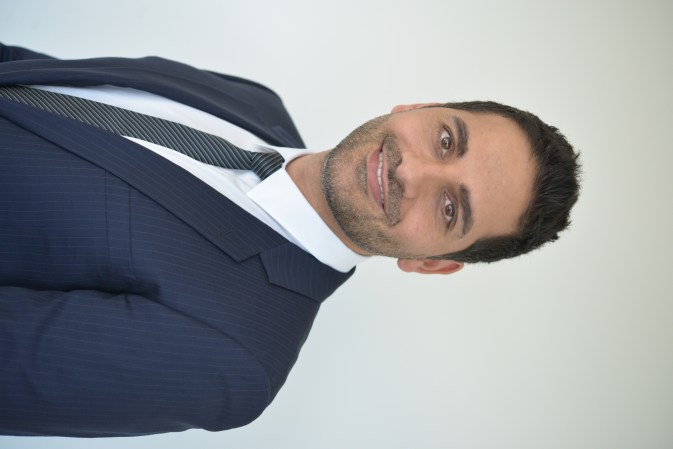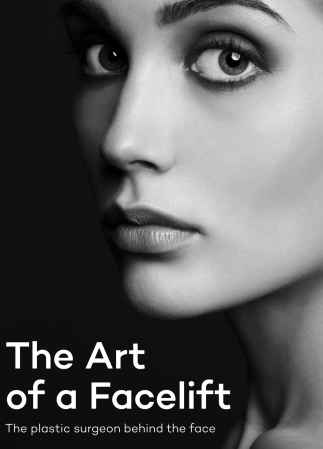In his new book, the Art of a Facelift, Plastic Surgeon Dr Jack Zoumaras gives us an insight into the psyche of his patients. The following is an excerpt of The Art of a Facelift:
Psychology is involved in every decision we make as humans whether good or bad, right or wrong. Plastic surgery and Facelift surgery are no different. While patients have a facelift to lift their skin, their jowls and smooth the face, the reason for having a Facelift are far more etched into the psyche than simple lifting. Even the result of looking rejuvenated and more youthful doesn’t explain the reasoning for a Facelift.
Not everyone who has jowls and loose skin seeks a facelift. Patients have a facelift because of an internal calling that has everything to do with psychology and nothing to do with the actual plastic surgery and its effects.
Many would be surprised to know that the major reason for patients requesting a Facelift, is not to look younger. In fact, only 20% of all of my patients that present for a Facelift say they want a Facelift to look younger. Now, there is no doubt that you will look more youthful, but this is not the primary motivator in the majority of patients.
Humans are complicated, and we do things for various reasons that are intricate to the internal and external environment that we are coming from. It is important to understand, acknowledge and work with this as a Plastic Surgeon, this way, when I consult with my patient, we can both be on the same page about what they want in/with their facelift, so that it will be an empowered choice, which is ultimately fulfilling.

Thankfully I can report that 100% of my Facelift patients are incredibly happy that they had the surgery and that the procedure has in fact empowered them with confidence.
Why do some want a facelift and others do not?
This question is complex but comes down to what you as an individual value in your life. A facelift empowers and gives confidence. Many patients value the way they look and it forms an important part of who they are, others have reached a point in their life where they want to do something for themselves and be confident. A facelift is a pathway for this to happen.
Much like we dream of upgrading our cars, buying our dream house, renovating our kitchen, that promotion to our ideal job; the patients I see, want to improve on themselves.
They want to refresh the way they look on the outside, to match how they feel on the inside. They want their confidence back. As a Facelift Plastic Surgeon, I have found that the main motivators for a facelift vary from wanting to feel better about themselves, look better/fresher, look younger and rejuvenated, and wanting to stay relevant in the workforce.
Other reasons I come across regularly are patients that suddenly face a major life change or milestone, including separation from a life partner, marriage of a child, celebrating a milestone birthday, or having children. These major life events matter, because of the way they make you feel, and let’s just get down to psychology 101, no one should ever disregard or discount anyone else’s feelings.
My patients want to feel empowered; they want to look the way they feel, and they want to feel great. They want to look and feel refreshed, and remove that “you look tired” look. This is a great reason to have a facelift.
However, wanting a “revenge” facelift, to get back at someone or prove a point, is the wrong motivating factor for a facelift, and will not result in empowerment, because a Facelift cannot change your relationships with other people, it can only enhance your relationship with yourself.
I have counselled patients on this very point and recommended they see a psychologist to work through any unhealed trauma. I’m happy to see them proceeding with this, and we can then work out a plan that is suitable for them and their needs if they still feel that they want Plastic Surgery.

As an ethical doctor and expert Plastic Surgeon, I must obtain as much information about the reasons my patients are wanting a facelift, as this information serves to enable my patient and me, to make the right decisions before proceeding with surgery.
Plastic Surgery will improve your relationship with yourself, not with others. This is a very important point and I will say it again “Plastic surgery will improve your relationship with yourself, not others.”
Having plastic surgery can be isolating
A lot of my facelift patients feel a sense of loneliness, even guilt, and other mixed emotions when presenting for a facelift. I find that even though my patients have different reasons and life circumstances for wanting a facelift, they all share a very similar emotional burden that they are working through in their quest to look and feel great, (and a lot of it is guilt-driven).
Both younger facelift patients (40-55) and older ones (above 55) often have some guilt when presenting for a facelift. Younger patients feel that the amount of money they will spend could be better used for a mortgage or rent or family holidays. Older patients, likewise feel that money should be spent on their children or grandchildren. They feel guilty for wanting to spend money on themselves.
Most of the time, there is nobody that these patients can talk to about this, and sometimes it truly falls on the Plastic Surgeon to listen and understand these very real feelings and emotions.
Patients often feel judged, even by close family members and friends, and it’s important to understand that these are all normal feelings. Patients often cannot confide in family or close friends when having a Facelift, because it is taboo and they fear judgement.
The positive side is that I can honestly say that not one patient has regretted the money that they have invested in themselves. The very normal feeling of guilt is replaced by happiness, confidence, and self-love.
My patients often come with a partner or support person, but many come alone. Sometimes their partners do not understand why they are wanting a facelift. Many partners are supportive, but also hesitant, which visibly adds stress to the patient. It’s very sad that a lot of my patients, more often than not, feel quite lonely having a facelift, this is because they feel that they cannot tell their extended family and friends, for fear of being judged.
Plastic surgery and Facelift surgery are still very much taboo, particularly in Australia (less so in other parts of the world). Less than 10% of my patients freely talk about it, and I am hoping that my book will provide insight and reassurance for those that are contemplating a facelift, those that have had a facelift, and their support persons (family, friends and work colleagues).
A facelift is an investment to self, it will not only rejuvenate and refresh your look, but it will also rejuvenate and refresh your relationship with yourself. The new-found self-empowerment and confidence are real and priceless.
This is an excerpt of The Art of a Facelift by Dr Jack Zoumaras. artisteplasticsurgery.com.au/product/the-art-of-a-facelift/
This article originally appeared in Issue 92 of SPA+CLINIC
Read SPA+CLINIC’s latest issue here:
There are 5 ways you can catch up with SPA+CLINIC
- Our quarterly print magazine, delivered to your door. Subscribe here.
- Our website, which is updated daily with its own completely unique content and breaking news.
- Our weekly newsletter – free to your inbox! Subscribe here.
- Our digital magazine – click here to view previous issues.
- Our social media – see daily updates on our Instagram, Facebook & Linkedin




